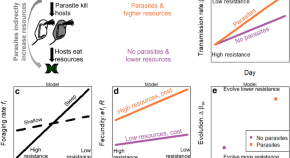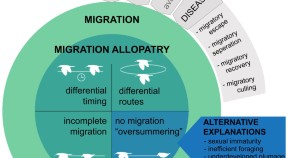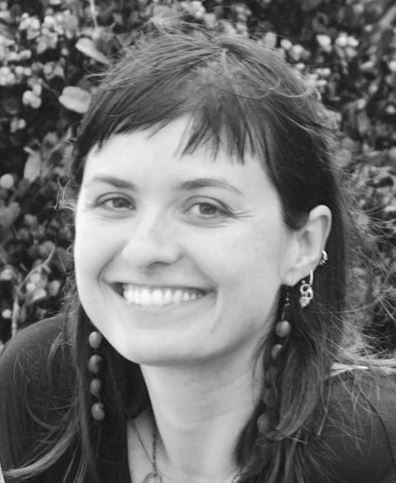
Collection
Special Issue: Infectious Disease
- Submission status
- Closed
Infectious disease is ubiquitous among ecosystems. Pathogen and parasite populations are known to exert selection on populations of their hosts, and vice versa, driving evolutionary and coevolutionary change. Interactions between a host and a particular pathogen or parasite are, however, just one of a great many biotic and abiotic ecological interactions in the wider ecosystem, and it is well known that ecological and evolutionary shifts are inherently linked.
Over fifty years ago, G. E. Hutchinson considered interplay between ecological and evolutionary phenomena when he coined the metaphor of the ecological theatre and the evolutionary play. Since then, we have developed considerable insight into the evolution and ecology of infectious disease, from both tightly controlled experiments that come at the cost of ecological realism and ecologically realistic studies that often come at the cost of experimental control. But we are still left with the question: to what extent does ecology and (co)evolution interact to shape disease over space and time in natural communities?
In this special issue we sought contributions that examine the relationship between the ecological theatre and evolutionary play in ecologically realistic disease systems.
Keep up with the latest Evolutionary Ecology content by signing up for Journal Alerts today!
Editors
-
Stuart Auld
An evolutionary ecologist interested in disease at Biological and Environmental Sciences, University of Stirling, Dr. Auld's current work focuses on how environmental variation affects the disease cycle - epidemiological and coevolutionary dynamics both within and across epidemics - and uses a naturally coevolving freshwater crustacean and its sterilising bacterial parasite (Daphnia magna and Pasteuria ramosa).
-
Jessica L. Hite
Dr. Hite's research integrates data and mathematical tools to better understand how physiology and immune functions jointly shape how hosts respond to and cope with infections and these processes within-hosts scale-up to influence disease dynamics and pathogen evolution. Current projects focus on extending research from the lab to the field using a combination of detailed lab assays with fruit flies and bacteria and livestock systems spanning a range of grazing and farming practices.
Articles (12 in this collection)
-

-
A call for more ecologically and evolutionarily relevant studies of immune costs
Authors
- Kristofer T. Sasser
- Jesse N. Weber
- Content type: IDEAS & PERSPECTIVES
- Published: 20 October 2022
- Pages: 203 - 214
-
The scale of competition impacts parasite virulence evolution
Authors (first, second and last of 4)
- Elsa Noël
- Sophie Lefèvre
- Alison B. Duncan
- Content type: Original Paper
- Published: 27 August 2022
- Pages: 153 - 163

-
A paradox of parasite resistance: disease-driven trophic cascades increase the cost of resistance, selecting for lower resistance with parasites than without them
Authors (first, second and last of 5)
- Jason C. Walsman
- Alexander T. Strauss
- Spencer R. Hall
- Content type: Original Paper
- Published: 15 August 2022
- Pages: 53 - 74

-
Beyond canonical models: why a broader understanding of Diptera-microbiota interactions is essential for vector-borne disease control
Authors
- Aldo A. Arellano
- Andrew J. Sommer
- Kerri L. Coon
- Content type: Original Paper
- Published: 28 July 2022
- Pages: 165 - 188

-
Should I stay, should I go, or something in between? The potential for parasite-mediated and age-related differential migration strategies
Authors
- Michelle Wille
- Marcel Klaassen
- Content type: Original Paper
- Open Access
- Published: 11 July 2022
- Pages: 189 - 202

-
Sexual recombination and temporal gene flow maintain host resistance and genetic diversity
Authors (first, second and last of 6)
- Katherine D. McLean
- Camden D. Gowler
- Meghan A. Duffy
- Content type: Original Paper
- Published: 27 June 2022
- Pages: 97 - 111

-
Resource availability for the mosquito Aedes aegypti affects the transmission mode evolution of a microsporidian parasite
Authors
- Giacomo Zilio
- Oliver Kaltz
- Jacob C. Koella
- Content type: Original Paper
- Open Access
- Published: 09 June 2022
- Pages: 31 - 51

-
Altered within- and between-host transmission under coinfection underpin parasite co-occurrence patterns in the wild
Authors (first, second and last of 4)
- Suvi Sallinen
- Hanna Susi
- Anna-Liisa Laine
- Content type: Original Paper
- Open Access
- Published: 19 May 2022
- Pages: 131 - 151

-
Virulence evolution during a naturally occurring parasite outbreak
Authors (first, second and last of 7)
- Camden D. Gowler
- Haley Essington
- Meghan A. Duffy
- Content type: Original Paper
- Open Access
- Published: 12 April 2022
- Pages: 113 - 129

-
Genomic heterozygosity is associated with parasite abundance, but the effects are not mediated by host condition
Authors
- Sarah A. Budischak
- Sarah Halvorsen
- Findley Finseth
- Content type: Original Paper
- Published: 07 April 2022
- Pages: 75 - 96

-
A common measure of prey immune function is not constrained by the cascading effects of predators
Authors (first, second and last of 4)
- Adam Z. Hasik
- Simon P. Tye
- Adam M. Siepielski
- Content type: Original Paper
- Published: 29 June 2021
- Pages: 13 - 30




